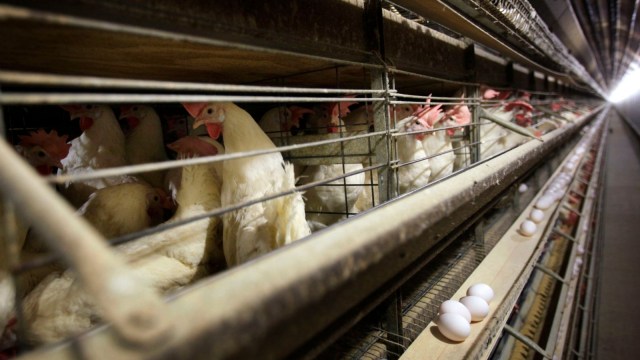Click here to join Express Pune WhatsApp channel and get a curated list of our stories
Why monitoring outbreaks in animals key to track human cases of H5N1
Dr Rajeev Jayadevan, Co-Chairman of the Indian Medical Association's COVID task force, said that H5N1 remains a significant threat to poultry and wild bird populations. Recently, Maharashtra also reported India's first case of bird flu among other animals.
 Can bird flu affect eggs? (file)
Can bird flu affect eggs? (file)Public health experts have underlined the need to monitor and control the poultry population’s outbreaks in cases of the AH5N1 virus (bird flu). The good news is that the virus does not spread from person to person. “However, regular surveillance to prevent even an occasional virus jumping to man and causing infections is important,” experts have said.
Dr Rajeev Jayadevan, Co-Chairman of the Indian Medical Association’s COVID task force, said that H5N1 remains a significant threat to poultry and wild bird populations. Recently, Maharashtra also reported India’s first case of bird flu among other animals. Three tigers and one leopard died of avian influenza at an animal rescue centre in Nagpur.
According to the Centers for Disease Control and Prevention, the first person in the United States died as a result of an H5N1 infection. Outside the USA, more than 950 cases of H5N1 bird flu have been reported to the World Health Organisation and about half of those resulted in death.
“These viruses circulate among wild birds. And when these migratory birds visit poultry farms, the chickens get infected. In most instances, the infection is confined to birds because of the basic nature of the virus. There are occasional instances of the virus jumping to man and causing infections, which could sometimes turn severe or even fatal. This occurs mainly when people handle dead or sick birds without precautions. While examining the viruses that caused these rare cases of human infection, scientists have detected new mutations that were not originally found in the virus that infected the bird. This shows the bird flu virus has the ability to create new mutations based on human biology,” Dr Jayadevan explained.
While he said that regular surveillance of bird flu outbreaks in poultry farms along with international cooperation will help us stay on top of the situation, the expert appealed to prevent even the occasional instances of human infection from poultry farms by following standard precautions. “Importantly there is no person to person transmission and vigilance can help minimise the chance that the virus will make such adaptations,” he added.
Dr I S Gilada, Secretary General, People’s Health Organisation said though this infection can cross over to humans, there is no evidence of sustained human-to-human transmission of this virus. “Tracking the viruses and other microbes, genome sequencing, knowledge sharing, research and development to find vaccines, treatments/cures, and prevention guidelines if and when there is an outbreak are crucial steps that should have continuity. However, what is required for the common man is – to not to interfere with the environment, ecology, or domains of other animals or birds or plant species. Like we human beings have the right to survive, other animals too have similar rights. Else we are inviting several zoonotic diseases, poisoning from wild plants and global warming-related calamities,” Dr Gilada said.
Click here to join Express Pune WhatsApp channel and get a curated list of our stories







